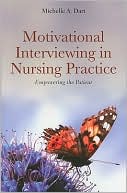Category Books
- Fiction Books & Literature
- Graphic Novels
- Horror
- Mystery & Crime
- Poetry
- Romance Books
- Science Fiction & Fantasy
- Thrillers
- Westerns
- Ages 0-2
- Ages 3-5
- Ages 6-8
- Ages 9-12
- Teens
- Children's Books
- African Americans
- Antiques & Collectibles
- Art, Architecture & Photography
- Bibles & Bible Studies
- Biography
- Business Books
- Christianity
- Computer Books & Technology Books
- Cookbooks, Food & Wine
- Crafts & Hobbies Books
- Education & Teaching
- Engineering
- Entertainment
- Foreign Languages
- Game Books
- Gay & Lesbian
- Health Books, Diet & Fitness Books
- History
- Home & Garden
- Humor Books
- Judaism & Judaica
- Law
- Medical Books
- New Age & Spirituality
- Nonfiction
- Parenting & Family
- Pets
- Philosophy
- Political Books & Current Events Books
- Psychology & Psychotherapy
- Reference
- Religion Books
- Science & Nature
- Self Improvement
- Sex & Relationships
- Social Sciences
- Sports & Adventure
- Study Guides & Test Prep
- Travel
- True Crime
- Weddings
- Women's Studies
Motivational Interviewing in Nursing Practice: Empowering the Patient » (1E)

Authors: Michelle A. Dart
ISBN-13: 9780763773854, ISBN-10: 0763773859
Format: Paperback
Publisher: Jones & Barlett Learning
Date Published: February 2010
Edition: 1E
Author Biography: Michelle A. Dart
Book Synopsis
Motivational Interviewing In Nursing Practice: Empowering The Patient Is A Guide To Learning Motivational Interviewing, A Set Of Skills That Utilizes Therapeutic Communication To Promote Behavior Change. This Text Provides Unique Tools For Nurses To Implement And Help Patients Take Responsibility In Their Own Health Care, Make Informed Decisions And Provide Guidance Toward Healthy Behavior Change, Leading To Improved Health Of Our Communities And Country.
This Unique Reference Contains Diagrams, Tables, And Case Studies Throughout To Offer A Better Understanding Of How To Utilize The Skills In Daily Practice. Clear Objectives Are At The Beginning Of Each Chapter And Key Points To Remember Are Included At The End Of Each Chapter. The Skills Learned Will Help Nurses To Accomplish The Many Healthcare Goals And Empower Their Patients Through Communication.
Doody Review Services
Reviewer:Jennifer L Bodine, ADN, BA, MHA, MSN (pending)(Sentara Leigh Hospital)
Description:This book explains the importance of maintaining a patient-centered relationship in all aspects of healthcare through motivational interviewing. A significant number of disease-specific case studies help illustrate how to perform motivational interviewing in different scenarios.
Purpose:The purpose is to outline the nurse's role, through motivational interviewing, in helping patients to make behavioral changes to support better health. Given the drive for healthcare to become more patient-centered, this book is needed. The author meets the objectives, clearly describing the steps of motivational interviewing and how they can be implemented in practice.
Audience:Although the book is intended for nurses regardless of their specialty, it is questionable whether motivational interviewing can be used in all settings. There may be situations when an inadequate amount of time is allotted for the nurse to be able to help the patient achieve "change talk." The author has experience with the diabetic population and has worked in the psychiatric setting where motivational interviewing has proven to be successful.
Features:The book covers the benefits of motivational interviewing through therapeutic communication. It gives step-by-step instructions on how to perform motivational interviewing as well as expected barriers and how to overcome them. It gives numerous examples using case studies involving different disease processes. The best part of the book is the use of case studies to demonstrate both effective and ineffective communication with a patient who has a specific problem. This provides reinforcement of the basic steps of motivational interviewing as well as how to have a therapeutic conversation with a patient. I tried to use this is in the emergency department, but time is limited and this is definitely a technique that requires the nurse to be 100% present with the patient for the entire conversation. This can be difficult with the distractions of some healthcare settings.
Assessment:This interesting book encourages a more patient-centered environment. It is definitely helpful in showing nurses the importance of allowing patients to make their own decisions based on their own values and life situations. The author embraces the holistic nature of nursing by reinforcing the idea that there is more to a patient than a disease.
Table of Contents
Subjects
 Medicine
Medicine  Clinical Medicine
Clinical MedicineMedical Books
 Nursing
Nursing  Nurse & Patient
Nurse & PatientNonfiction
 Psychology
Psychology  Clinical Psychology
Clinical PsychologyNonfiction
 Psychology
Psychology  Psychology - Theory, History & Research
Psychology - Theory, History & ResearchPsychology & Psychotherapy
 Clinical Psychology
Clinical Psychology  Counseling - General & Miscellaneous
Counseling - General & MiscellaneousPsychology & Psychotherapy
 Clinical Psychology
Clinical Psychology  Methodology - Psychology
Methodology - PsychologyPsychology & Psychotherapy
 Psychological Disorders
Psychological Disorders  Counseling - General & Miscellaneous
Counseling - General & MiscellaneousPsychology & Psychotherapy
 Psychological Disorders
Psychological Disorders  Methodology - Psychology
Methodology - PsychologyPsychology & Psychotherapy
 Psychology - Theory, History & Research
Psychology - Theory, History & Research  Behavioral Psychology
Behavioral PsychologyPsychology & Psychotherapy
 Psychology - Theory, History & Research
Psychology - Theory, History & Research  Cognitive Psychology
Cognitive PsychologyMedical Books
 Psychology & Psychotherapy
Psychology & Psychotherapy  Clinical Psychology
Clinical PsychologyMedical Books
 Psychology & Psychotherapy
Psychology & Psychotherapy  Psychological Disorders
Psychological DisordersMedical Books
 Psychology & Psychotherapy
Psychology & Psychotherapy  Psychology - Theory, History & Research
Psychology - Theory, History & ResearchNonfiction
 Medicine
Medicine  Medicine
MedicineNonfiction
 Medicine
Medicine  Nursing
Nursing
